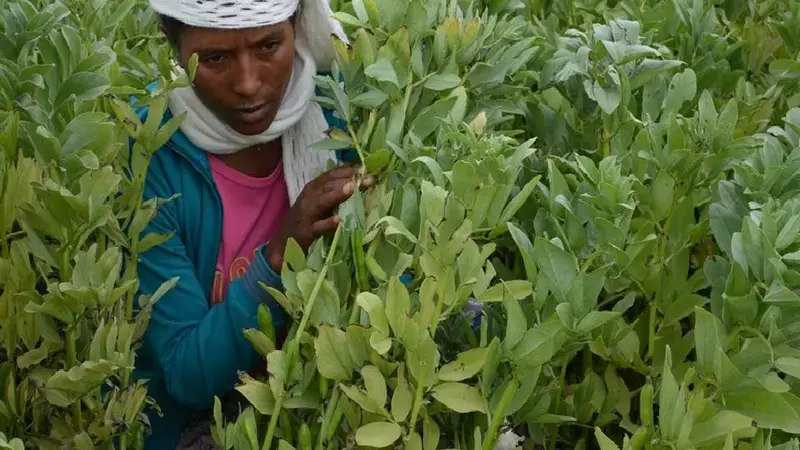Eminent Scientists & an Action-Oriented Agenda @ 2016 International Conference on Pulses

The 2016 International Conference on Pulses for Health, Nutrition and Sustainable Agriculture in Drylands heads into its final days of preparation with an exciting line-up of distinguished scientists, policy-makers and leading private sector organizations from the world over. Over 300 participants are gathering at the event, held April 18-20 in Marrakesh, under the auspices of Morocco’s Ministry of Agriculture and Fisheries. The event is amplifying the goals of the UN’s 2016 International Year of Pulses by calling on diverse stakeholders to join hands for a common cause – the increase of pulses production via sustainable intensification of cereal-based systems in the developing world. The approach promises win-win strategy for people and the planet – healthier soils and greater nutritional security while also generating extra income for the poor.
The Conference will be inaugurated by H.E. Mr. Aziz Akhennouch, Minister of Agriculture and Fisheries, Morocco, followed by opening remarks by leaders from various conference partner organizations – ICARDA, Institut National de la Recherche Agronomique (INRA)-Morocco, OCP Foundation, IFAD, FAO, and the CGIAR Research Program on Grain Legumes.
A high point of the event will be the keynote speech from a world renowned scientist on climate-resilient agriculture, Prof. Rattan Lal, The Ohio State University, USA. Lal has the distinction of being on Thomas Reuters list of World’s Most Influential Scientific Minds for 2014 and 2015. His talk will highlight the critical role pulses play for soil health and sustainability of agricultural production systems.
Pulses – called “climate-smart crops” by Mahmoud Solh, ICARDA’s Director General – contribute positively to soil health through their unique nitrogen fixation and have a tiny water footprint, while being an affordable source of macro- and micro-nutrition for resource poor in the developing world. They are quick maturing and can be viewed as a catch crop that can sustainably intensify cereal- based production systems, particularly in the drylands.
The Conference is set for a rich and enlightening three days as numerous agricultural luminaries convene to update the world on the state of pulses and the road ahead to bridging the demand-supply gap faced in the developing world. Bert Vandenberg, University of Saskatchewan, Canada, Pramod Joshi, International Food Policy Research Institute, Dilrukshi Thavarajah, Clemson University, USA (the leading Pulse and Vegetable Quality and Nutrition Program) and Kadambot Siddique, University of Western Australia, are amongst the 12 top-notch scientists scheduled to give keynote speeches.
The Agenda – Talking Science, Markets, Policy and Institutions
The Agenda will bring together the world’s leading experts in engaging discussions, with the latest updates on a range of topics:
• The Global Pulses Scenario – Production, Consumption and Trade
• Global Health, Nutrition and Gender
• Innovations in Pulses Science and Research
• Opportunities for Enhancing Pulses Production
Conference Highlight: Country Experiences and the Path Forward
A special knowledge sharing event on April 20 will give media and wider stakeholders the opportunity to listen to country representatives in a lightning presentation on their successes, lessons learnt, and challenges ahead for ramping up domestic pulses production. This will be followed by roundtable discussions to find consensus and chart a practical path forward for achieving a boost in pulses production – both at the national level and for farmers in the developing world.
The event is gearing up for extensive media coverage onsite and can be followed online using #TalkPulses.
See the full Conference Program and Biographies
Conference Partners: International Center for Agricultural Research in the Dry Areas (ICARDA), Institut National de la Recherche Agronomique (INRA)-Morocco, OCP Foundation, International Fund for Agricultural Development (IFAD), The Food and Agriculture Organization of the United Nations(FAO), and CGIAR Research Program on Grain Legumes
For more information, contact Andrea Gros at [email protected] or Rajita Majumdar at [email protected]
